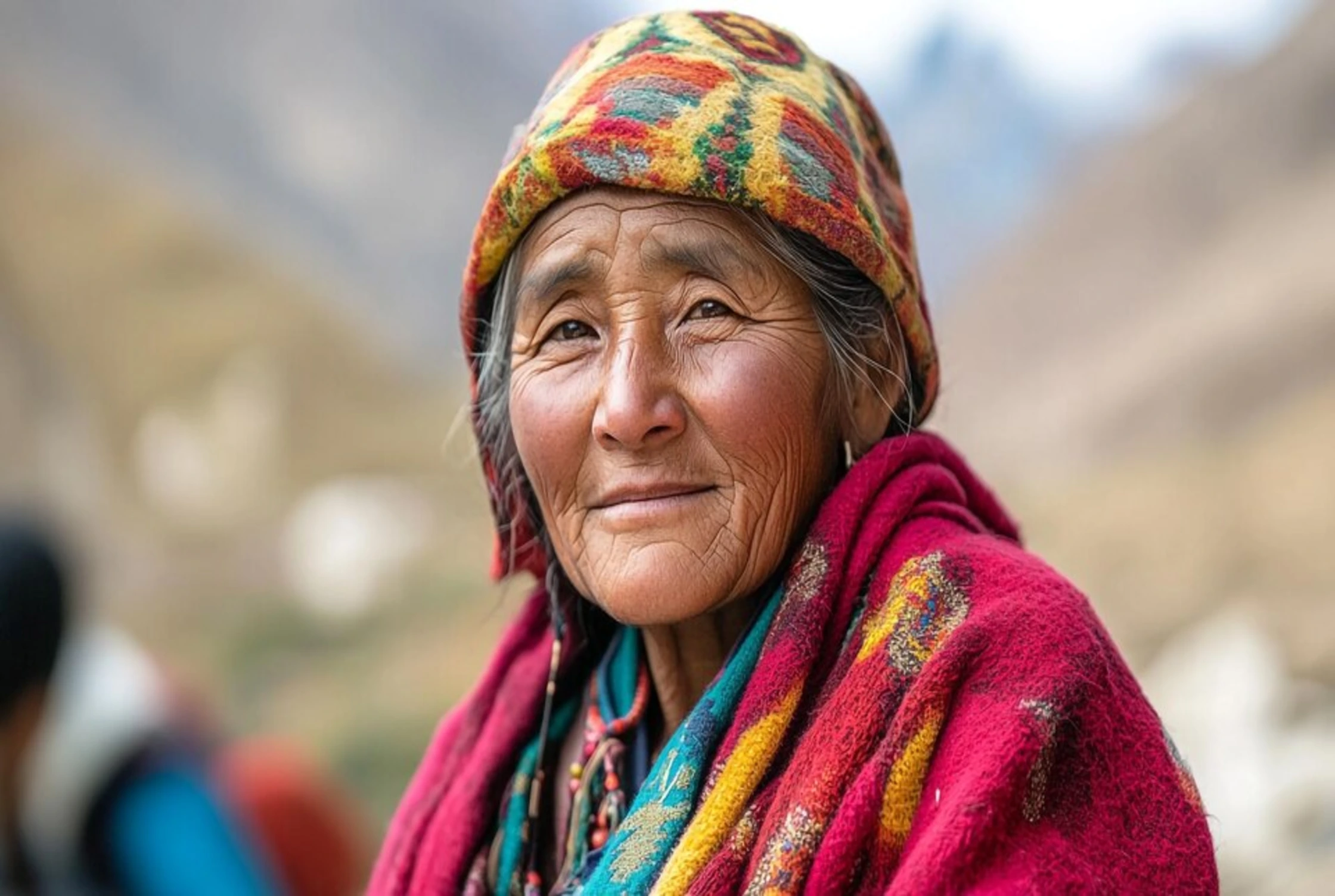Bolivian women have been instrumental in shaping the nation’s history, culture, and social development. From Indigenous Aymara women who proudly wear pollera skirts as a symbol of cultural pride to contemporary activists advocating for women’s rights, their influence is deeply embedded in Bolivia’s identity. Despite enduring challenges like gender-based violence, economic disparities, and limited political representation, Women have demonstrated extraordinary resilience. Their contributions in politics, business, art, and activism continue to drive Bolivia’s progress.
The Role of Indigenous Women in Bolivian Society
Indigenous women, especially Aymara women, play a pivotal role in Bolivian culture. Historically marginalized, these women have worked tirelessly to reclaim their identity and assert their rights. The cholitas, Indigenous women who proudly wear traditional attire, have become symbols of empowerment. Their pollera skirts, once a marker of colonial oppression, now represent cultural pride and resistance.
A remarkable example of this empowerment is the Cholitas Escaladoras, a group of Indigenous women mountaineers who have scaled Bolivia’s highest peaks in their traditional clothing. Their accomplishments defy societal stereotypes and inspire women across Bolivia to pursue their aspirations, regardless of societal expectations.
Bolivian Women’s Political Participation
Despite systemic obstacles, Bolivian women have achieved significant milestones in politics. Bolivia boasts one of the highest percentages of female lawmakers in Latin America, thanks to policies promoting gender equality. Pioneers like Bartolina Sisa, an Indigenous leader who resisted Spanish colonial rule, laid the foundation for today’s female political leaders.
Contemporary figures such as Jade Isabela Callau Barriga and Adela Zamudio have continued this legacy, championing equal rights and greater representation. Women’s involvement in politics has led to reforms addressing gender-based violence, reproductive health, and education. However, challenges persist, and ongoing advocacy is crucial to ensure women have an equal voice in shaping the nation’s future.
Women’s Rights and Feminism in Bolivia
The feminist movement in Bolivia has gained significant traction in recent years, driven by increased awareness of gender-based violence and systemic discrimination. Organizations like the Bartolina Sisa Confederation and the Bolivian Women’s Network Against Violence are leading the charge for legal reforms and social change.
One of the most pressing issues for Bolivian women is gender-based violence, with high rates of domestic abuse and femicide. Activists have successfully pushed for stricter laws and better support systems for survivors. The Comprehensive Law to Guarantee Women a Life Free from Violence, enacted in 2013, marked a significant step forward. However, enforcement remains inconsistent, and many women still struggle to access justice.
Bolivian feminism also emphasizes economic empowerment, encouraging women to join the workforce and pursue entrepreneurship. Programs supporting women’s entrepreneurship help them achieve financial independence and break the cycle of poverty.
Education and Employment Opportunities for Women
Education is a key factor in improving the lives of Bolivian women. While literacy rates have improved, Indigenous and rural women still face significant barriers to accessing quality education. Efforts to promote women’s education have led to increased enrollment in schools and universities, but challenges like early marriage and domestic responsibilities persist.
In the workforce, Women’s employment has seen notable changes. Many women still work in informal sectors such as agriculture and domestic service, but more are entering fields like business, construction, and technology. Organizations like the Asomuc Association advocate for female construction workers, pushing for equal pay and improved working conditions. Initiatives such as Mujeres al Volante, a female-operated taxi service, provide safe transportation while creating job opportunities for women.
Bolivian Women in Art, Literature, and Music
Bolivian women have made significant contributions to art, literature, and music. Writers like Adela Zamudio used poetry to challenge gender inequality, while contemporary artists explore themes of identity and resistance. Women’s music is equally impactful, with female musicians blending traditional folk sounds with modern genres to celebrate their cultural heritage.
Dance is another area where Bolivian women’s contributions stand out. Traditional dances such as the Caporales and Morenada, performed by women in vibrant costumes, showcase Bolivia’s rich cultural identity. Through these artistic expressions, Bolivian women preserve their heritage while redefining their societal roles.
Health and Social Issues Affecting Bolivian Women
Health remains a critical issue for Bolivian women, particularly in rural areas where access to healthcare is limited. Women’s health initiatives focus on maternal care, reproductive rights, and reducing maternal mortality rates. Organizations strive to provide better healthcare services, especially for Indigenous communities, where traditional healing practices often complement modern medicine.
Another significant issue is women’s migration and diaspora. Many women leave Bolivia in search of better economic opportunities, often facing exploitation and discrimination abroad. Efforts to protect migrant women’s rights and establish support networks are essential in addressing these challenges.
The Future of Bolivian Women: Resilience and Progress
Despite ongoing challenges, Bolivian women’s resilience continues to shape the nation’s future. From Indigenous cholitas reclaiming their cultural identity to feminist activists demanding equality, Women are redefining their roles in society. Their achievements in politics, business, arts, and activism highlight their strength and determination to build a more inclusive and equitable Bolivia.
As awareness of women’s challenges grows, more initiatives are being developed to address inequality and promote empowerment. Whether through education, economic opportunities, or legal reforms, the progress of Bolivian women remains a cornerstone of the nation’s development.
FAQs About Bolivian Women
1. What is the role of cholitas in Bolivian society?
Cholitas, Indigenous Aymara women known for their traditional pollera skirts and bowler hats, play a vital role in preserving Bolivian culture. They are involved in business, politics, sports, and activism, breaking stereotypes and empowering future generations.
2. What are some challenges faced by Bolivian women?
Bolivian women face challenges such as gender-based violence, economic inequality, limited access to education, and political underrepresentation. However, advocacy efforts and legal reforms are working to improve their rights and opportunities.
3. How has feminism influenced Bolivian society?
Bolivian feminism has led to increased awareness of women’s rights, stricter laws against gender-based violence, and more opportunities for women in politics and business. Organizations and activists continue to push for gender equality.
4. What contributions have Bolivian women made in politics?
Bolivian women have made significant political contributions, with increased representation in government and leadership positions. Leaders like Bartolina Sisa and modern activists continue to fight for women’s rights and social justice.
5. How are Bolivian women preserving their cultural identity?
Bolivian women preserve their cultural identity through traditional clothing, dance, music, literature, and activism. Their resilience in embracing their heritage while advocating for change is a testament to their strength and determination.
Women continue to inspire with their perseverance and contributions, ensuring that their voices are heard and their rights recognized. Their journey reflects not only the struggles they have faced but also the incredible progress they have made.
ALSO READ: Brandon Johnson Approval Rating Nosedives in New Poll











